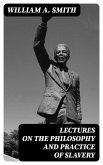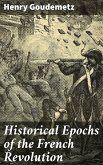In "Lectures on the French Revolution," John Emerich Edward Dalberg Acton, Baron Acton, presents a rigorous examination of one of history's most tumultuous periods. His discourse is characterized by a blend of scholarly analysis and eloquent prose, drawing on a rich array of historical sources and philosophical underpinnings. Acton meticulously dissects the political, social, and moral ramifications of the Revolution, situating it within the broader context of Enlightenment thought. His keen insights challenge prevailing narratives, emphasizing the complex interplay between liberty and tyranny, which resonate through the ages, making the text not only a historical treatise but also a timeless reflection on the nature of power and authority. Baron Acton was a prominent historian and moralist, renowned for his deep commitment to liberalism and civil liberties. His aristocratic background and extensive academic pursuits, including a focus on history and the philosophy of history, deeply informed his perspective on political upheaval. Acton's experiences during periods of political instability in Europe likely influenced his critical views on the repercussions of revolutions, allowing him to offer a unique interpretation grounded in both history and ethical considerations. "Lectures on the French Revolution" is a must-read for scholars and enthusiasts of history alike. Acton'Äôs profound insights prompt readers to reconsider the complexities of revolutionary change and its impact on human rights and governance. This work not only enriches our understanding of the French Revolution but also encourages a thoughtful examination of contemporary political struggles.
Dieser Download kann aus rechtlichen Gründen nur mit Rechnungsadresse in A, B, BG, CY, CZ, D, DK, EW, E, FIN, F, GR, H, IRL, I, LT, L, LR, M, NL, PL, P, R, S, SLO, SK ausgeliefert werden.









